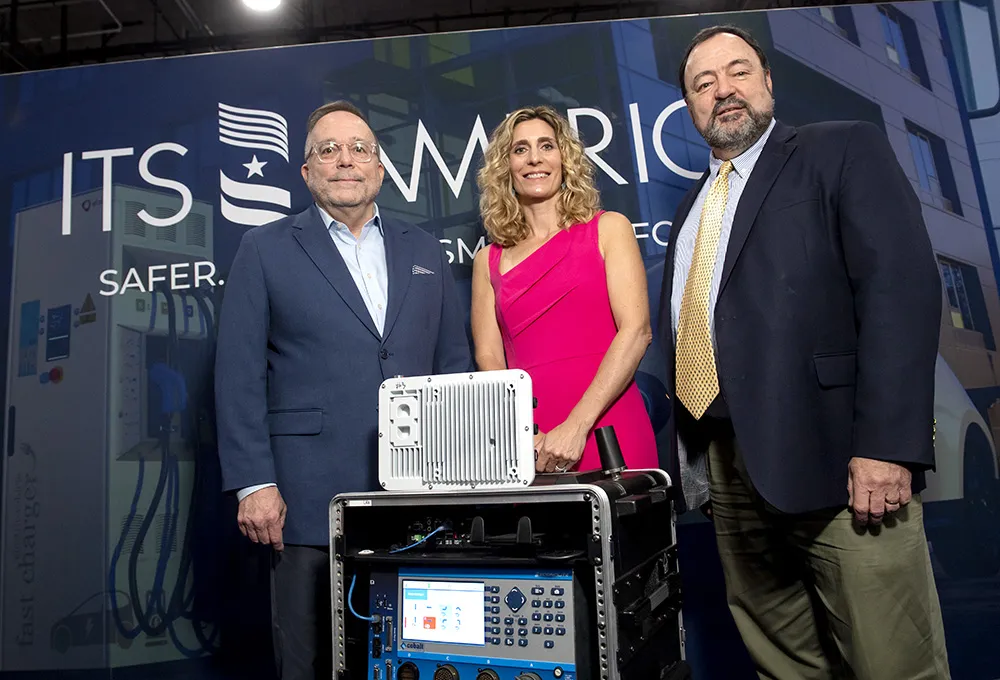The US government is looking into opening up wi-fi space for the public, but it could impact on vehicle-to-vehicle communication (V2V) technology developed to prevent up to 80 per cent of car crashes, according to a discussion on CBS News.
After more than a decade in development and more than a half-billion dollars in taxpayer money spent, the technology aimed at making roads safer and saving an estimated 1,083 lives every year may now be sidelined to make room for wi-fi.
Dr Peter Sweatman, director
March 27, 2015
Read time: 3 mins
The US government is looking into opening up wi-fi space for the public, but it could impact on vehicle-to-vehicle communication (V2V) technology developed to prevent up to 80 per cent of car crashes, according to a discussion on CBS News.
After more than a decade in development and more than a half-billion dollars in taxpayer money spent, the technology aimed at making roads safer and saving an estimated 1,083 lives every year may now be sidelined to make room for wi-fi.
Dr Peter Sweatman, director of the5647 University of Michigan Transportation Research Institute (UMTRI) and chair of 560 ITS America’s Leadership Circle, took part in the discussion on (V2V) and vehicle-to-infrastructure (V2I) communication, together with 834 National Highway Traffic Safety Administration (NHTSA) administrator Mark Rosekind and US Senator Cory Booker.
The discussion focused on the Wi-Fi Innovation Act, introduced by Senators Booker and Marco Rubio to open up the radio frequency reserved for V2V. Government estimates say wi-fi contributes to more than US$140 billion of economic activity per year and demand is growing for the limited available spectrum.
The bill has bipartisan supporters in Congress and would require the FCC to evaluate whether wi-fi and V2V can co-exist.
"We want to get to the point where traffic moves like two schools of fish seamlessly moving together," Dr Peter Sweatman said.
He has been working on the technology for five years and is now asking Congress not to pass the bill, fearing it would mark open season on V2V's bandwidth.
"Our concern is that any other traffic within that spectrum could potentially block one of these important signals," Sweatman said. "We don't want to be in a position where some other use of the spectrum for transmitting a movie or something, is going to have to be stopped so that our signal can get through."
His pilot project at the University of Michigan is set to expand to 20,000 vehicles next year. He says any changes could delay the safety equipment's roll-out by as long as five more years.
"Spectrum sharing could put the frequencies at risk of dangerous interference," warned the NTSB. "The opportunity to improve transportation safety must not be delayed by issues associated with interference."
NTSB administrator Mark Rosekind said the issue is not about convenience or access to the web, but about saving lives. He doesn't necessarily oppose spectrum sharing, but said it was the FCC who set aside the bandwidth 15 years ago.
The auto industry itself has invested half a billion dollars in V2Vbut the government is said to be frustrated with the pace at which the technology has developed, and say the auto industry has been slow to embrace the idea of sharing bandwidth. They have some big supporters: two FCC commissioners are open to sharing, and so is corporate giant Comcast.
After more than a decade in development and more than a half-billion dollars in taxpayer money spent, the technology aimed at making roads safer and saving an estimated 1,083 lives every year may now be sidelined to make room for wi-fi.
Dr Peter Sweatman, director of the
The discussion focused on the Wi-Fi Innovation Act, introduced by Senators Booker and Marco Rubio to open up the radio frequency reserved for V2V. Government estimates say wi-fi contributes to more than US$140 billion of economic activity per year and demand is growing for the limited available spectrum.
The bill has bipartisan supporters in Congress and would require the FCC to evaluate whether wi-fi and V2V can co-exist.
"We want to get to the point where traffic moves like two schools of fish seamlessly moving together," Dr Peter Sweatman said.
He has been working on the technology for five years and is now asking Congress not to pass the bill, fearing it would mark open season on V2V's bandwidth.
"Our concern is that any other traffic within that spectrum could potentially block one of these important signals," Sweatman said. "We don't want to be in a position where some other use of the spectrum for transmitting a movie or something, is going to have to be stopped so that our signal can get through."
His pilot project at the University of Michigan is set to expand to 20,000 vehicles next year. He says any changes could delay the safety equipment's roll-out by as long as five more years.
"Spectrum sharing could put the frequencies at risk of dangerous interference," warned the NTSB. "The opportunity to improve transportation safety must not be delayed by issues associated with interference."
NTSB administrator Mark Rosekind said the issue is not about convenience or access to the web, but about saving lives. He doesn't necessarily oppose spectrum sharing, but said it was the FCC who set aside the bandwidth 15 years ago.
The auto industry itself has invested half a billion dollars in V2Vbut the government is said to be frustrated with the pace at which the technology has developed, and say the auto industry has been slow to embrace the idea of sharing bandwidth. They have some big supporters: two FCC commissioners are open to sharing, and so is corporate giant Comcast.










